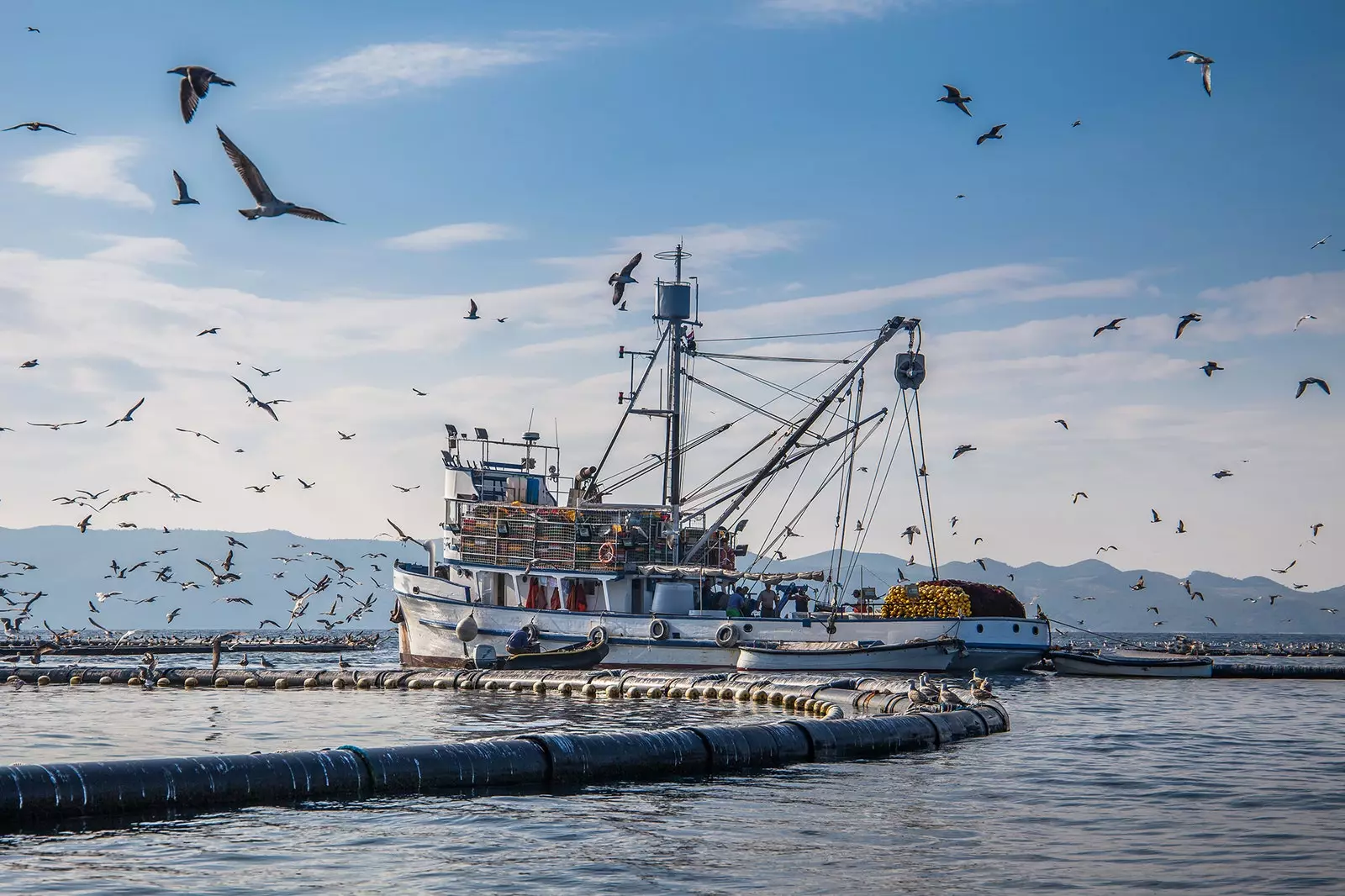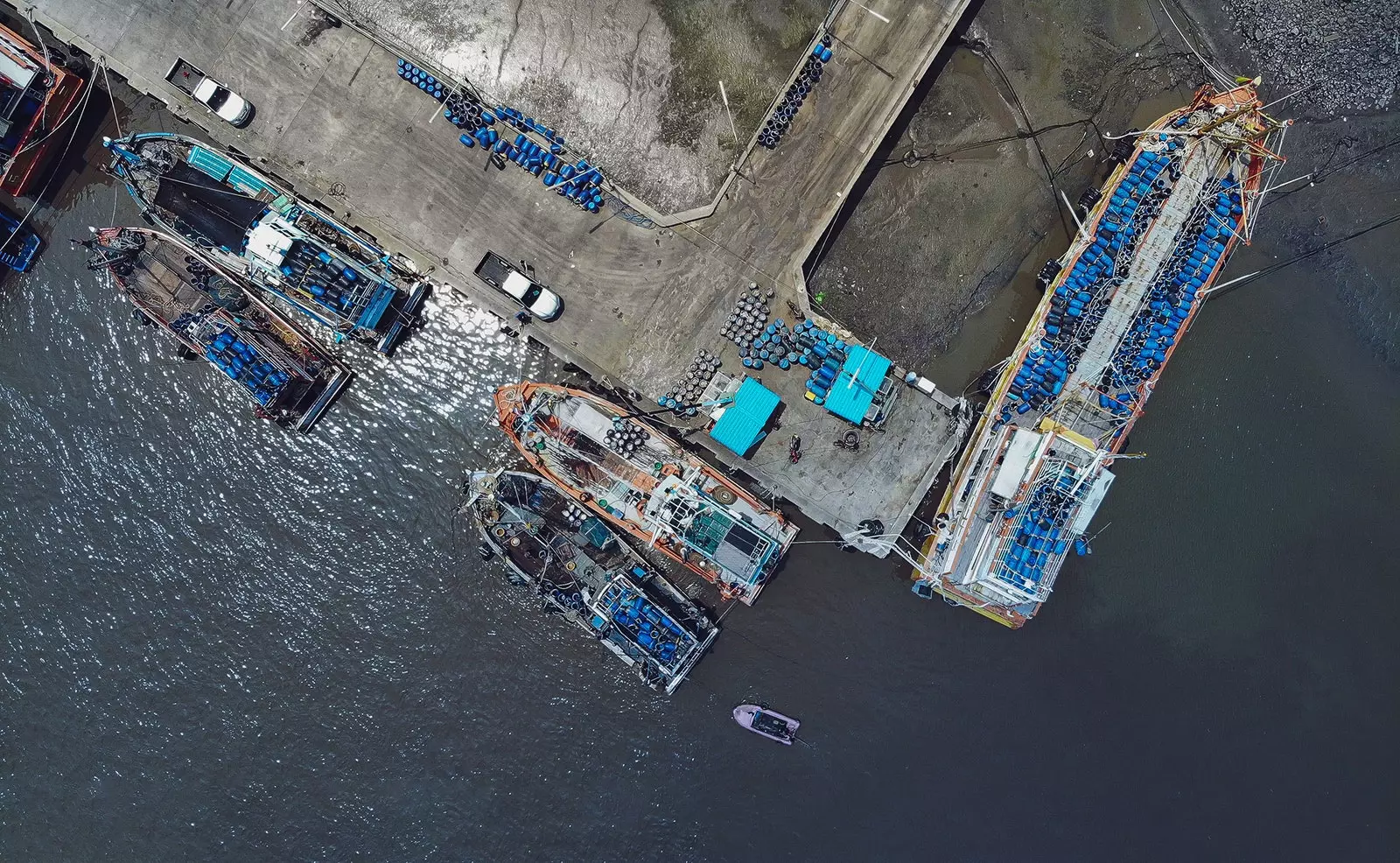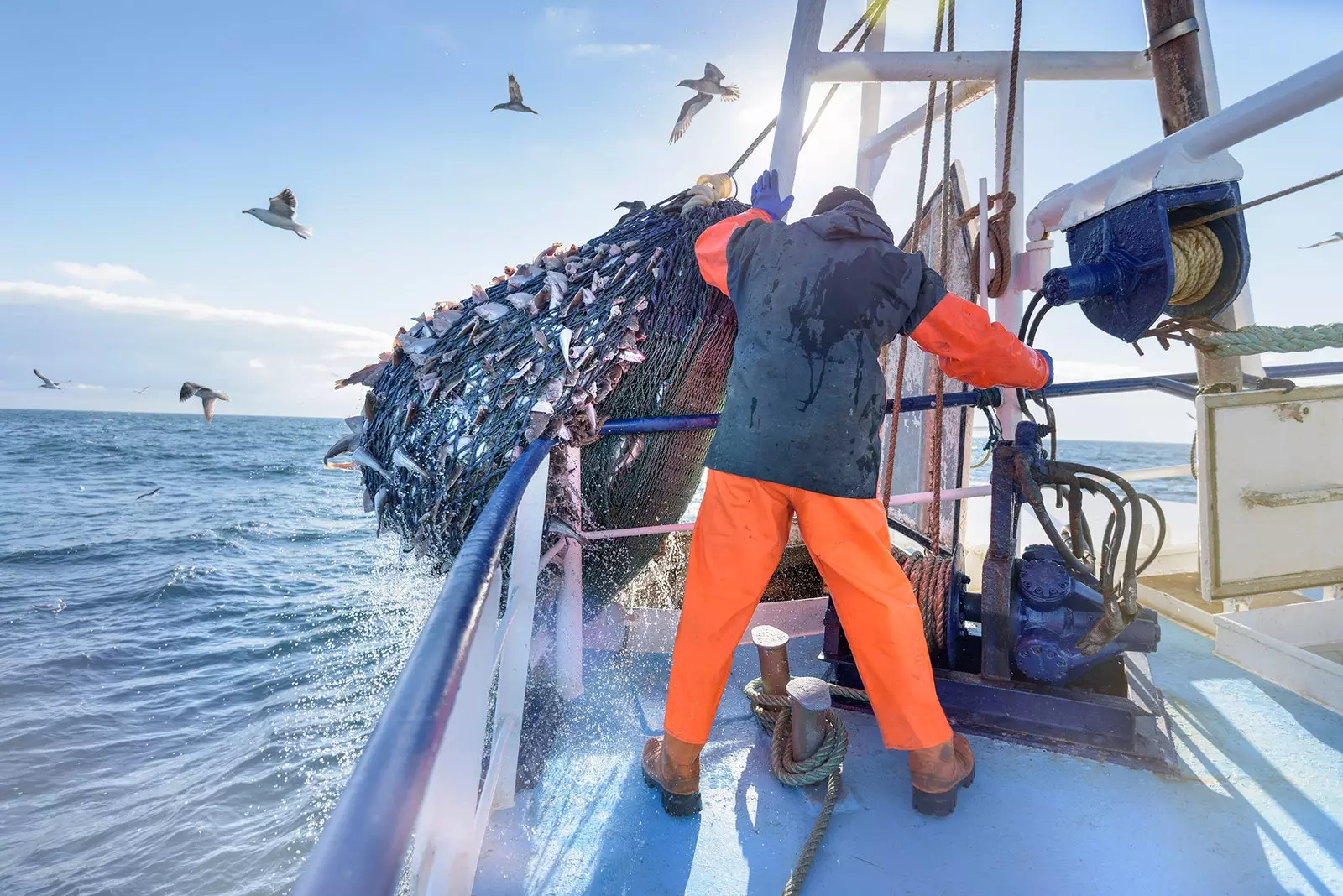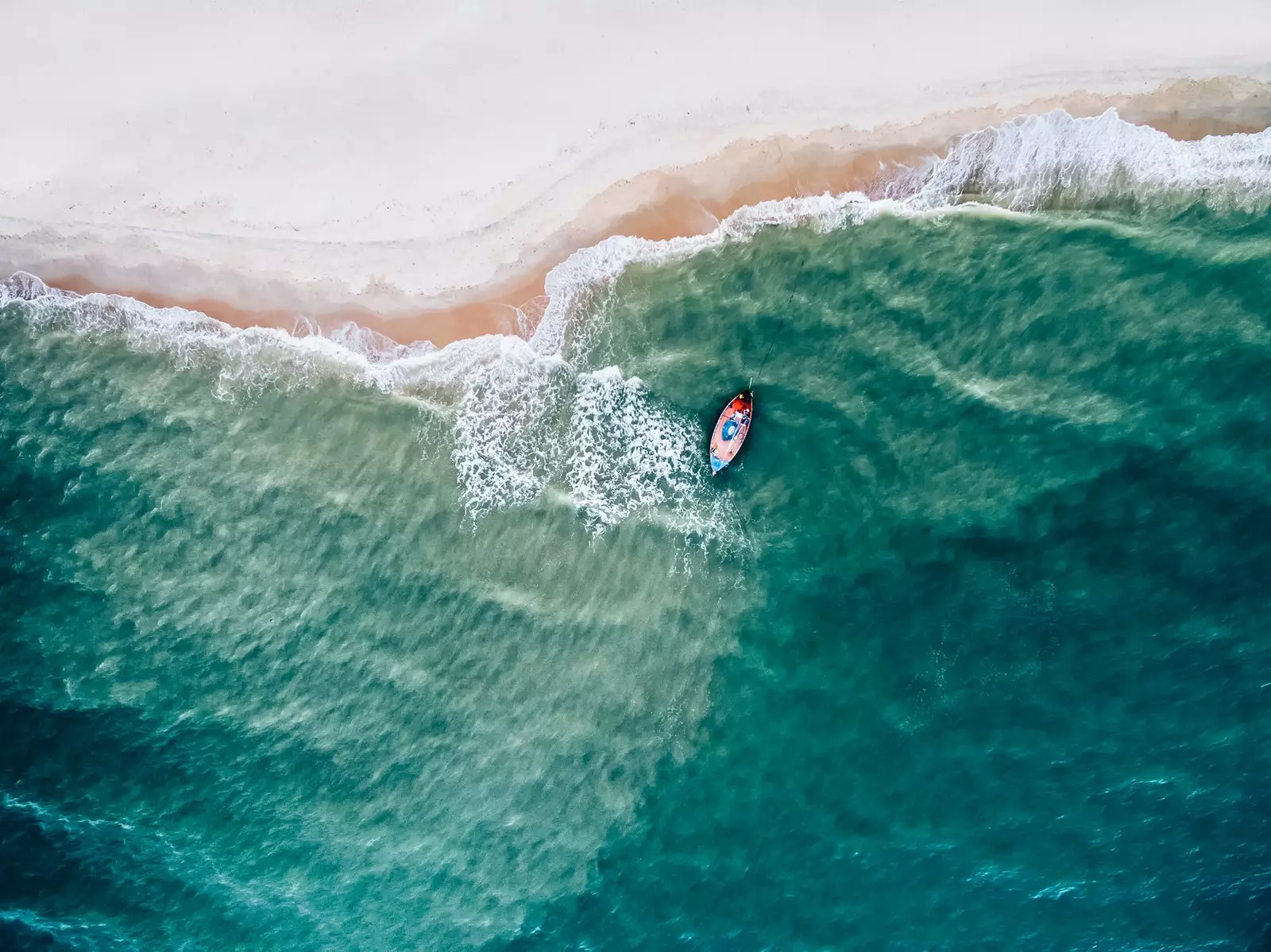
We are facing the limits of the oceans
Just over 20 years ago, one of the world's most prestigious ecologists dared to put an expiration date to fishing. And that date was alarmingly close. According to the calculations of the prestigious Doctor Boris Worm, before 2048 we would be left without marine fauna suitable for human consumption.
Perhaps a warning signal was hidden in those calculations, a cry to heaven to Arouse greater awareness of the administrations, the fishing industry and, ultimately, of society in general.
According to the study published in the prestigious science magazine, ocean biodiversity loss was accelerating to such an extent that 29% of marine species no longer existed, and the long-term trend made it quite clear that in 30 years there would be little or nothing to fish.
Obviously we had to look for a culprit (beyond human voracity) and all the accusing fingers pointed in one direction: illegal fishing.
Alarmed at red numbers much worse than expected, the scientific community got down to work. One of the most interesting initiatives and one that has achieved the most media noise in a short time is **Global Fishing Watch**, which was born from the close collaboration of three great partners: oceana, an international organization dedicated to the protection and restoration of the oceans; SkyTruth, which brings together experts in using satellite technology to protect the environment; Y Google, which provides the necessary tools for big data processing.
But as in many other cases, no organization is worth without good financing. And much better if the one who puts up the money is a Hollywood star like **Leonardo DiCaprio.**
Global Fishing Watch geolocates more than 70,000 ships around the world to fight against illegal fishing. Can this technological platform change the world of fishing by revealing the footprint of illegal fishing worldwide? Leonardo DiCaprio has assured on his official social networks that it is the only way to "rebuild fisheries and protect critical marine habitats." A message that goes deep between promotional act and promotional act for his new movie with Quentin Tarantino.
“The challenge of achieving fishing transparency not only is it realistic but it is already happening and the global support is growing.” These are exclusive words from Tony Long, CEO of Global Fishing Watch for Traveler.es.
“Anyone with an internet connection can check it for free, tracking the route of ships and downloading the data of their past and present activity . This offers unprecedented opportunities to improve the way fisheries are managed,” he explains.
Although it is very painful to hear it, very few countries can afford law enforcement to stop illegal fishermen. Satellite fisheries transparency offers an alternative and much more profitable route because “It is much easier to track a vessel than it is to locate and intercept an illegal vessel. States should work together to reward compliance with legal practices and hold vessels with suspect data accountable by tracing their histories”.
For the time being, progress is positive because the nations are putting their grain of sand. In 2016, the indonesian government launched a program to make its vessel tracking data publicly available.
Other subsequent compromises have been achieved with Peru, Panama, Chile, Costa Rica and Namibia. Along with public support and research associations of Canada, Japan and the United States, are generating considerable momentum, since we are talking about the world's great fishing powers (including Spain, which has not yet officially released its data).
But there is a big drawback. The Global Fishing Watch system is based on a vessel geolocation system called AIS (acronym for Automatic Identification System). And if someone with bad intentions disconnect the AIS, that vessel does not exist and it becomes a ghost on the map because its route cannot be followed. It's what the captains of illegal fishing boats do.
So how do you combat illegal, unregulated and unreported (IUU) fishing? Namely, How to track what does not appear on the radar without losing credibility?
"The issue is another," says Tony Long, “This is based on the practice of allowing only vessels that meet the requirements to land their catch. The more port states that commit, the more we can reduce the capacity of illegal fishermen to operate undetected.
Although this situation would be ideal, the scientists at Global Fishing Watch know that it is not reality and that is why they are pouring all their efforts into improving their technology.
“Our ability to directly detect and track fishing vessel activity globally is undergoing an extraordinary transformation. Satellite-based vessel detection using radar, imaging, or radio-frequency intercepts is maturing, And when combined with new analytic techniques like machine learning and artificial intelligence, it makes vessel monitoring faster, more efficient and more accessible than ever. Probably, within a generation, the emerging new satellite technology will allow all industrial fishing vessels in the world to be tracked, not just ships that are (voluntarily) broadcasting their location.” With this information, the authorities will know which ships can and should be trusted and which cannot.

Reward fishermen who comply with the law and punish illegal ones
There are also those who see in this monitoring Collateral damage. And it is to leave the trail of the boat makes the best fishing areas visible to the competition and to pirates of the sea when they navigate through particularly dangerous areas.
“Our modus operandi is based on make all information public 72 hours late. This process is transparent enough to create new responsibilities for resource users and markets without affecting fishermen who like to protect their knowledge of the fishing grounds and prevent other fishermen from benefiting from their historical knowledge.”
For the CEO of Global Fishing Watch, it really is a wake-up call for the fishing industry: “The era of secrecy is over. One in five fish is caught illegally, and unrecorded illegal fishing accounts for $23.5 billion worth of seafood each year. In February of last year, we published the first global fisheries data set in Science. The study reveals that industrial fishing extends over more than half of the global ocean, which makes the footprint of fishing is four times greater than that of agriculture”.
Global Fishing Watch does not believe that the year 2048 will spell the end of fishing but they are well aware that “we are facing the limits of the oceans . Unless world leaders take decisive and urgent action, the decline of the oceans will continue at an alarming rate and coastal communities and economies will suffer.”

Anglers who meet the requirements should be rewarded
Here we come to a critical point: Who is more to blame? Illegal fishermen or countries that accept illegal fishing and allow unloading in their ports? “The global fisheries enforcement system is patchy at best,” says Tony Long. “Any entity that does not act is part of the problem. Illegal, unreported and unregulated (IUU) fishing is a multi-billion dollar organized crime that endangers marine life, harms law-abiding fishermen, and misleads responsible retailers and well-meaning consumers alike.”
If illegal fishing is not dead yet, it is because it is tremendously profitable. “And it is profitable because illegal fishermen now find it easy take their stolen products to ports, across borders and onto the shelves of our supermarkets, trusted stores and restaurant menus.”
There is only one solution according to his criteria: “Fishers who meet the requirements should be rewarded through faster and more efficient port entry and disembarkation. Unauthorized vessels, and those with a history of faults, should be inspected more often or may even be denied port entry.”
Namely, To prove illegality, Global Fishing Watch technology puts all the pressure on fishermen instead of nations. A controversial decision that can bring tail. Thus, "honest fishermen are encouraged, recognized and rewarded, while those who act outside the law are exposed, penalized and, ultimately, imprisoned.”

They don't belong to us, let's take care of them
